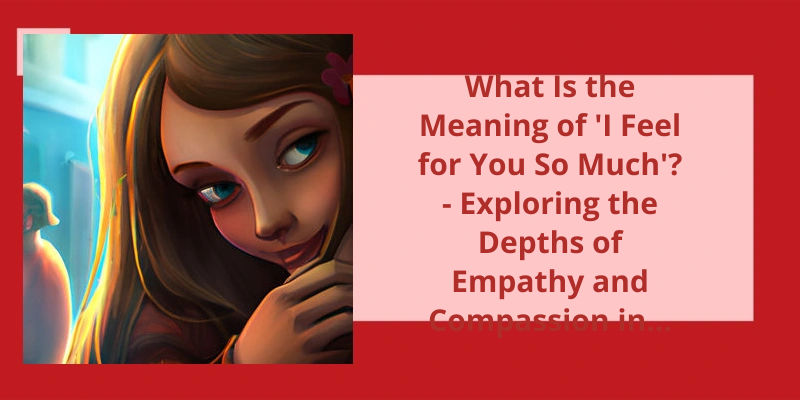In today's world, finding intimacy and forming connections can be a challenging endeavor. Many individuals find themselves talking and messaging potential partners for weeks or even months without setting up a date. While some might argue that prolonged conversation builds a stronger foundation for a relationship, others may question whether this extended communication is simply a way to avoid taking the next step. Whatever the reason for delayed dating may be, it's clear that it’s become a common occurrence in modern dating culture. The question remains, however, is extended communication without a date a sign of genuine interest or a red flag for lack of commitment?
How Often Should You Talk Before Dating?
It’s essential to find a healthy balance when it comes to communicating with a potential partner. Talking too often can lead to burn out and lack of interest, while not communicating enough can create doubt and confusion.
In the early stages of dating, it’s typical for both parties to be excited and want to talk constantly. However, it’s important to establish boundaries and not rely solely on communication to build a relationship. Spending time together in person and enjoying activities outside of texting or talking is crucial for fostering a deeper connection.
It’s also crucial to consider the individuals preferences and lifestyle when determining how often to communicate. Some people may prefer more frequent communication, while others may not need as much. It’s important to have open and honest communication about what works best for both parties.
Ultimately, the frequency of communication should be based on the quality of the conversation and the level of connection between the two individuals. If the communication feels forced or lacks substance, it may be a sign to slow down and focus on developing the relationship in other ways.
In summary, there’s no set rule for how often to talk before dating. By keeping these factors in mind, individuals can navigate the early stages of dating with patience and intentionality.
The Benefits of Taking Time to Get to Know Someone Before Committing to a Relationship.
Spending time getting to know someone before entering into a relationship can be advantageous as it allows an individual to really understand their potential partner’s values, personality traits, and interests. This can help prevent feelings of disappointment that may arise from rushing into a relationship without truly knowing the person. Additionally, taking time to get to know someone can lead to stronger and more meaningful connections.
Now that we’ve established that it’s not uncommon for the talking stage to last two months, let’s take a look at what can happen during that time and what signs to look for to determine whether it’s time to move on to something more serious.
Is 2 Months a Long Time to Talk to Someone?
It’s important to remember that every relationship moves at a different pace and timing should be based on what feels right for both parties. For some, two months may feel like a long time while others may feel it’s just the beginning. Communication is key during this phase to ensure that both individuals are on the same page and have similar expectations.
During the talking stage, it’s natural to want to get to know someone on a deeper level. This could involve sharing personal stories, discussing future goals and aspirations, and learning about each others interests and passions. It’s a time to build a strong foundation for a potential relationship and see if there’s compatibility beyond physical attraction.
It’s also important to keep in mind that the talking stage is a time for both individuals to assess whether or not they see a future together. This means being honest about intentions and expectations for the relationship moving forward. While it can be scary to put yourself out there, it’s better to have open communication and clarity than to prolong something that may not work out in the long run.
If after two months, both individuals are still enjoying each others company and feel a connection, it may be time to take the next step and commit to being exclusive. However, it’s important to remember that this is just the beginning and there’s still a lot of work and effort to be put into any relationship to make it successful. The talking stage may be over, but the relationship is just getting started.
Ultimately, the length of the talking stage is subjective to each relationship and shouldn’t be compared to others. It’s important to trust your instincts and give yourself time to get to know the other person before committing to something serious. Whether it takes two months or six, the most important thing is to have open communication and mutual respect for each others feelings and boundaries.
Source: If we’ve been talking for 2 months and nothing has …
It’s an age-old question: how soon is too soon to start dating after a breakup or being single for a while? And the truth is, there’s no one-size-fits-all answer. However, experts agree that two months in is generally a safe timeframe to start considering putting yourself out there again. But before jumping straight into the dating pool, it’s important to make sure you’re emotionally ready and have built a strong foundation for the conversation. Here are some steps you can take to ease the process.
Is 2 Months Too Soon to Start Dating?
Starting to date someone new can be an exciting and nerve-wracking experience. After all, youre letting someone new into your life and taking the first steps towards building a relationship. But how soon is too soon to start dating? As a general rule, two months in should be a safe amount of time to broach the subject, according to relationship expert Stott. However, it’s important to remember that every relationship is different.
Some couples may feel ready to start dating after only a few weeks or even days, while others may take much longer to build up their confidence and feel comfortable with the idea. Ultimately, the timing should be determined by your individual circumstances and feelings. If youre not yet ready, don’t be afraid to take some time to work on yourself, build your confidence and develop your own interests.
One of the biggest challenges of starting a new relationship is learning how to communicate effectively. It’s important to be open and honest with your partner about your thoughts and feelings, and to listen to what they’ve to say in return. This may involve being vulnerable and sharing your past experiences and fears with them, but it’s essential for building a strong and healthy foundation for your relationship.
Of course, theres no guarantee that starting to date someone new after two months is going to lead to a successful relationship. There are many factors that can affect the outcome of a relationship, including compatibility, values, communication skills and timing. However, by taking the time to get to know yourself and your partner better, communicating openly and honestly and approaching the situation with care and sensitivity, you can give your new relationship the best possible chance of success.
Signs That You May Not Be Ready to Start Dating After Two Months.
- You still have strong feelings for your ex-partner
- You aren’t emotionally available
- You aren’t over your past relationship
- You aren’t sure what you want out of a relationship
- You’re still trying to figure out your own needs and desires
- You feel pressured to start dating again
- You aren’t ready to invest time and effort into a new relationship
- You aren’t interested in dating right now
It’s no secret that dating can be a tricky dance filled with uncertainty and cautious optimism. With so many people seeking genuine connections and meaningful relationships, it’s important to approach the situation with patience and a certain level of restraint. So, how long should you wait before asking the other person to be exclusive? According to psychologists, it’s best to give it at least two months of consistent communication before making any major commitments.
Is 2 Months of Talking Before Dating?
When it comes to dating, timing is everything. Rushing into a relationship without really knowing the other person can lead to disappointment, heartbreak, and even disaster. Thats why psychologists recommend waiting at least two months before making things official. During this period, you can get to know the person better, determine whether you’re truly compatible, and establish a strong rapport.
Two months may seem like a long time, but it’s actually a perfect window to gauge whether you and your potential partner are a good fit. It allows you to spend quality time getting to know each other, sharing experiences, and building intimacy. You can talk about your goals, aspirations, and values, and see if they align with each others. You can also see how your personalities blend, and whether you’ve chemistry beyond physical attraction.
In addition to building a strong foundation, waiting for two months can help you avoid common dating pitfalls. For instance, it gives you enough time to spot any red flags that may pop up, such as controlling tendencies, dishonesty, or inconsistency. You can also see if the other person is genuinely interested in you, or if they’re just using you for their own benefit. Taking things slowly can help you weed out potential partners who may not be a good match for you.
Of course, there’s no exact science to determine how long you should wait before becoming exclusive. Some couples may feel ready after a few weeks of talking, while others may need several months or even a year. The most important thing is to follow your own instincts and set your own timeline. If you feel like you need more time to get to know the person, then take your time. On the other hand, if you feel like youve found the one, then don’t hesitate to commit.
The Signs of a Healthy Relationship and How to Spot Them Early on
- Open and honest communication between partners
- A mutual respect for each other’s opinions and boundaries
- Willingness to compromise and reach agreements
- Showing support and celebrating each other’s successes
- Taking responsibility for one’s own actions and emotions
- Maintaining trust and loyalty in the relationship
- Feeling comfortable and safe with each other
- Enjoying spending time together and having common interests
- Resolving conflicts in a constructive and respectful manner
- Being able to grow and evolve together as individuals and as a couple
Conclusion
In conclusion, talking to someone for two months without going on a date can feel frustrating and confusing. While it's important to build a connection with someone, it's also important to take action towards exploring the possibility of a romantic relationship. Communication is key in any situation, so it's important to have an honest conversation with the person about your expectations and intentions. Ultimately, it's up to both individuals to decide if they want to move forward and take the next step. However, if one person isn’t interested in pursuing a relationship, it's best to move on and find someone who shares the same goals and desires. Remember to value your own time and feelings, and don't settle for anything less than what you deserve.






